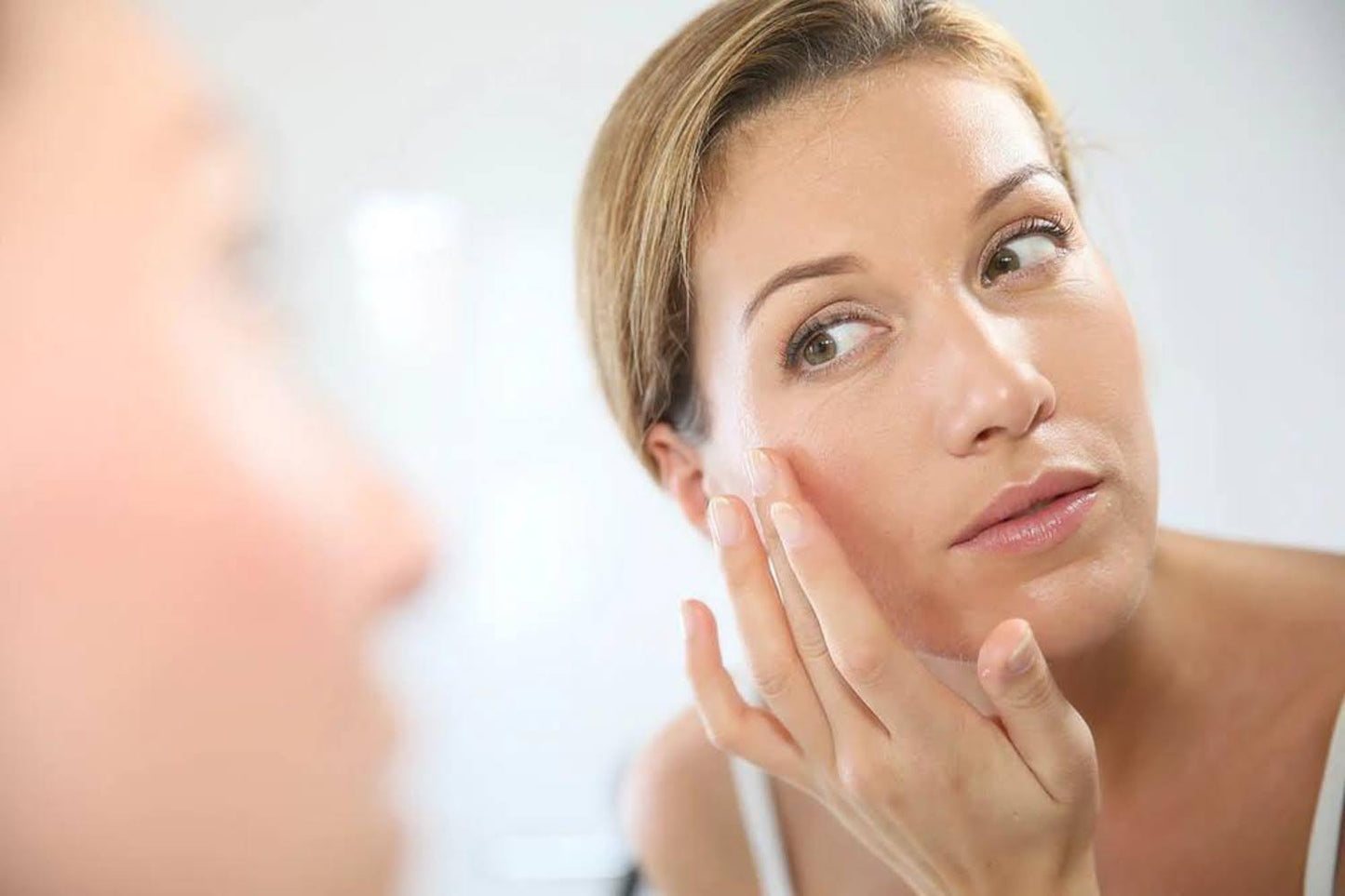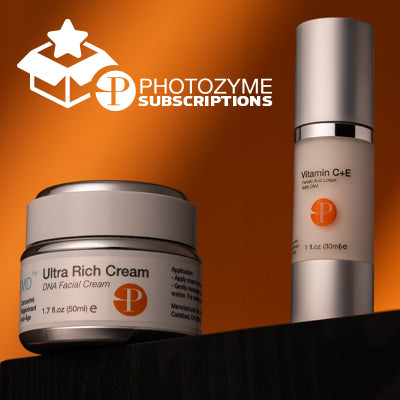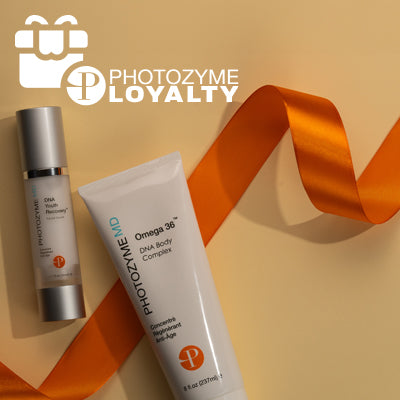
Key Takeaways:
- Essential Ingredients For Aging Skin: Aging skin demands moisturizers that provide deep hydration and anti-aging benefits, addressing decreased collagen production and moisture retention challenges.
- Powerful Anti-Aging Components: Moisturizers contain ingredients like hyaluronic acid, retinol, peptides, and DNA repair enzymes that help enhance skin hydration, improve firmness, and reduce visible aging signs.
- Maximizing Moisturizer Application: Proper application techniques, like using products on damp skin and applying upward strokes, maximize skincare efficacy.
Healthy skin is porous skin.
As you age, your skin undergoes deep changes, becoming thinner, less elastic, and more prone to dryness and wrinkles. But you still have control. You need the right skincare products, particularly moisturizers, to maintain healthy, youthful-looking skin. However, to find the best moisturizer for aging skin, the fittest products will bring deep hydration and anti-aging benefits, formulated to address the unique needs of aging skin.
At Photozyme LLC, we understand the importance of providing your skin with the nourishment and protection it needs to thrive. Based in Carlsbad, CA, our company specializes in creating innovative skincare products designed to combat the visible signs of aging, keep the skin hydrated, and protect it from environmental stressors.
In this article, we’ll explore the best moisturizers for aging skin, focusing on key ingredients that provide hydration and anti-aging benefits and how to choose the right product for maintaining a youthful, radiant complexion.
Understanding Aging Skin And Its Needs
As skin ages, it undergoes significant changes that affect its texture, appearance, and hydration levels. Collagen production decreases, leading to a loss of elasticity and firmness. Similarly, the skin's ability to retain moisture diminishes, making dehydration a common concern. These factors contribute to the signs of aging, such as fine lines, wrinkles, and dullness. Therefore, understanding the specific needs of aging skin is crucial for selecting the right skincare products, especially moisturizers.
The Importance Of Targeted Skincare For Aging Skin
Aging skin requires more than just essential hydration. It needs a blend of nourishing ingredients that can deeply penetrate the skin, restoring its natural barrier and promoting cell regeneration. Antioxidants are critical in protecting the skin from environmental stressors like UV rays and pollution, which accelerate aging. Ingredients like retinol, peptides, hyaluronic acid, and niacinamide have anti-aging potential, helping to stimulate collagen production, smooth fine lines, and improve skin texture and tone.
Balancing Hydration And Occlusion
Aging skin benefits from moisturizers that offer a balance between hydration and occlusion. While hydrating ingredients attract moisture to the skin, occlusive agents help to seal that moisture in, preventing transepidermal water loss. This dual approach ensures the skin remains hydrated and plump, minimizing the appearance of aging signs.
Managing Sensitivity In Aging Skin
Choosing the right moisturizer for aging skin also involves considering product formulations that cater to your skin's sensitivity. As it ages, skin can become more sensitive and prone to irritation. Hence, looking for products specifically formulated for mature skin, free from harsh irritants, and enriched with soothing ingredients can significantly affect how the skin looks and feels.
The Importance Of Hydration For Mature Skin
As skin matures, it undergoes several changes that can compromise its hydration and elasticity, leading to more pronounced signs of aging, such as wrinkles, fine lines, and sagging.
- Moisture Loss In Aging Skin: Mature skin experiences increased moisture loss due to reduced sebum production, leading to more pronounced signs of aging, such as wrinkles, fine lines, and sagging.
- Environmental Factors Accelerate Aging: Environmental factors like sun exposure, pollution, and temperature changes exacerbate moisture loss in aging skin.
- Hydration Supports Skin’s Barrier Function: Hydration plays a critical role in maintaining the skin’s barrier function, which helps protect against environmental aggressors and prevents further moisture loss.
- Hydrated Skin Reduces Wrinkle Formation: Well-hydrated skin is more pliable, reducing the formation of new wrinkles and softening the appearance of existing ones.
- Importance Of High-Quality Moisturizers: High-quality moisturizers for aging skin should hydrate and support natural repair processes, enhancing resilience against environmental damage.
- Key Ingredients For Hydration: Key hydrating ingredients include hyaluronic acid, glycerin, and ceramides, known for strengthening the skin’s barrier and improving moisture retention.
- Innovative Skincare Solutions From Photozyme LLC: Innovative skincare solutions from Photozyme LLC, like Ultra Rich Cream and Omega 36 DNA Body Complex, focus on hydration and anti-aging by incorporating proprietary ingredients that target DNA repair and protection.
Identifying Key Ingredients In Anti-Aging Moisturizers
When searching for the best moisturizer for aging skin, understanding the key components that target aging concerns is crucial. Moisturizers designed for aging skin go beyond mere hydration; they include ingredients to reduce fine lines, wrinkles, and other signs of aging.
Here, we highlight the essential ingredients that should be on your radar:
1. Hyaluronic Acid
Hyaluronic Acid is a powerhouse hydrator. Naturally occurring in the skin, it can hold up to 1000 times its weight in water, making it an excellent component for deeply moisturizing the skin. As we age, the natural levels of hyaluronic acid in our skin decrease, leading to dryness and the formation of wrinkles. Including hyaluronic acid in your skincare regimen can help maintain skin’s moisture levels and plumpness.
2. Retinol
Retinol, a vitamin A derivative, is widely acclaimed for its anti-aging benefits. It works by accelerating cell turnover, removing dead skin cells, and encouraging the growth of new ones. This process helps to minimize the appearance of fine lines and wrinkles and promotes a more youthful complexion.
3. Peptides
Peptides are short chains of amino acids that serve as building blocks for proteins such as collagen and elastin. These proteins are crucial for maintaining the skin’s firmness and elasticity. As aging skin produces less collagen, incorporating peptides into skincare products can stimulate collagen production, helping to repair and rejuvenate the skin.
4. Antioxidants
Antioxidants such as vitamins C and E, ferulic acid, and green tea extract help protect the skin from damage caused by free radicals — unstable molecules that can lead to premature aging. These ingredients also aid skin repair, brighten dull skin, reduce dark spots, and bolster skin’s defense against external stressors.
5. Photozyme’s DNA Repair Enzymes
Unique to Photozyme's product line is the inclusion of DNA repair enzymes, a cutting-edge ingredient that targets the repair and protection of the skin at a molecular level. By focusing on the skin's ability to correct the damage caused by environmental stressors such as UV radiation, these enzymes can significantly reduce the signs of aging, providing a rejuvenated appearance.
The Role Of Hyaluronic Acid In Skin Hydration
Hyaluronic acid is a naturally occurring substance found in the skin's connective tissue that serves as a moisture-binding ingredient, keeping skin plump, hydrated, and youthful-looking. As we age, the body's natural production of hyaluronic acid decreases, reducing moisture and forming fine lines and wrinkles.
The Moisture-Retaining Power Of Hyaluronic Acid
Hyaluronic acid can attract and retain more than 1,000 times its weight in water, making it one of the most effective ingredients for moisturizing aging skin. When applied topically, it replenishes moisture by absorbing water from the environment and deeper skin layers to keep the surface hydrated and revitalized.
Benefits Of Hyaluronic Acid For Aging Skin
Incorporating hyaluronic acid into your skincare routine helps prevent moisture loss, strengthens the skin's protective barrier, and shields against external elements that cause further dehydration. This results in improved skin texture and elasticity and a noticeable reduction in fine lines and wrinkles.
Combining Hyaluronic Acid With Anti-Aging Ingredients
Using products that combine hyaluronic acid with other beneficial ingredients is ideal for optimal skin hydration and anti-aging effects. Products like Photozyme's Ultra Rich Cream and Omega 36 DNA Body Complex are designed to synergize with hyaluronic acid, offering comprehensive hydration while addressing multiple signs of aging.
Peptides And Retinol: Friends Of Aging Skin
When exploring the question of "what is the best moisturizer for aging skin," including peptides and retinol in skincare formulations is a topic that cannot be overlooked. These powerhouse ingredients play a pivotal role in rejuvenating aging skin by promoting collagen production and speeding up cell turnover.
Peptides: The Building Blocks Of Youthful Skin
Peptides are short chains of amino acids that act as building blocks of proteins such as collagen, elastin, and keratin. These proteins are the foundation of your skin and are responsible for its texture, strength, and resilience. By stimulating the skin to produce more collagen, peptides help reduce wrinkles and fine lines, making the skin appear more youthful. Moreover, certain peptides possess anti-inflammatory properties, offering additional benefits by soothing and healing damaged skin.
Retinol: The Gold Standard For Renewal
Retinol, a vitamin A derivative, is widely regarded as the gold-standard ingredient in anti-aging skincare. It promotes skin cell turnover, which helps shed the top layer of dead skin cells, allowing new, healthier cells to surface. This process helps reduce the appearance of aging signs, improves skin texture, evens skin tone, and can diminish the visibility of age spots. Additionally, retinol has been shown to enhance collagen production, further supporting the skin’s elasticity and firmness.
Final Thoughts
Deciding the best moisturizer for your aging skin requires a holistic approach, considering the unique needs of aging skin for hydration, rejuvenation, and protection. At Photozyme LLC, we’re committed to novel products to combat the signs of aging. Our portfolio offers comprehensive solutions, including breakthroughs like the Omega 36 DNA Body Complex, DNA Youth Recovery Facial Serum, and the Probiotic P291 Cleanser.
Embrace the confidence that comes with skin that radiates health, resilience, and youth. Trust in a company that views aging skin as a journey of restoration and renewal.
Read also:
- Discovering Lightweight Body Lotions That Absorb Quickly
- Retinol vs Hyaluronic Acid: Which One Should You Use First?
- 7 Signs Of Aging Skin You Should Look Out For
Frequently Asked Questions About What Is The Best Moisturizer For Aging Skin
How does a moisturizer benefit aging skin?
Moisturizers restore hydration, improve texture, reduce fine lines, and protect against environmental damage. They also address the dryness and thinning that come with aging.
Can moisturizers reduce the appearance of fine lines and wrinkles?
Yes, with ingredients like hyaluronic acid, peptides, and retinoids, moisturizers can stimulate collagen production and hydrate, reducing the appearance of wrinkles.
How often should you apply moisturizer to aging skin?
Apply moisturizer twice daily, morning and night, to maintain hydration. The frequency can vary depending on skin type and climate.
Is there a difference between day and night moisturizers for aging skin?
Yes. Day moisturizers are lighter and contain SPF, while night moisturizers are richer and contain ingredients like retinoids for overnight repair.
What is the role of hyaluronic acid in moisturizers for aging skin?
Hyaluronic acid draws moisture into the skin, providing intense hydration and plumping the skin to reduce fine lines and wrinkles.
What are the key ingredients for a moisturizer for aging skin?
Look for hyaluronic acid, retinol, peptides, ceramides, and antioxidants to hydrate, repair, and protect aging skin.
How do antioxidants in moisturizers help aging skin?
Antioxidants protect against free radicals, helping to prevent fine lines and dark spots while promoting skin repair.
Can moisturizers with retinoids help with aging skin?
Yes, retinoids boost cell turnover and collagen production, reducing fine lines and age spots, but they should be introduced gradually to avoid irritation.




